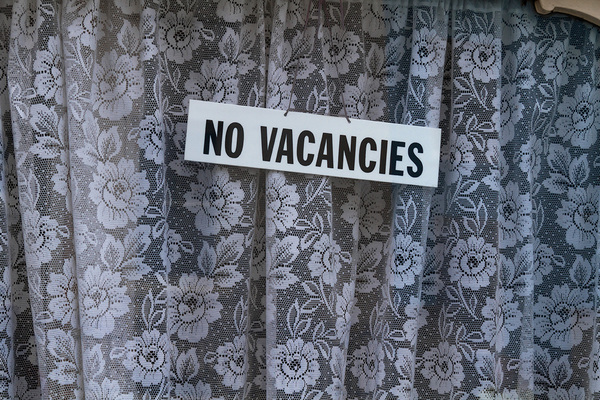How private funding partnerships can help sector tackle homelessness and deliver ESG goals to investors
An Inside Housing roundtable, in association with Capital Letters, delves into the detail of impact investment to increase delivery of quality new homes and provide returns to funders on social value performance. Illustration by Nick Lowndes
High homelessness numbers are prompting social landlords to look for new solutions. Increasingly this is seeing them work with private investors to increase capacity. For private investors this obviously is about long-term returns, as well as working with a sector that can help them deliver on their environmental, social and governance (ESG) investment credentials.
This joining of forces between the private and public sectors to tackle the housing crisis raises questions. What do these partnerships look like? How do councils balance the risk of working with investors? How do investors ensure they get a healthy return? What guidance is there on how partnerships can be formed?
Inside Housing brought together a number of experts to discuss the future of investment partnerships at a roundtable sponsored by Capital Letters, an organisation backed by the Department for Levelling Up, Housing and Communities that is working with 21 boroughs in London and private landlords to increase the supply of good-quality homes for letting so that families can move from temporary accommodation or avoid being homeless.
Temporary should not mean permanent
Sue Coulson, chief executive of Capital Letters, observes that private and public partnerships are going to be vital in tackling record levels of homelessness and temporary accommodation use. “This is an opportunity to build and find more homes that are refurbished, because if we don’t increase supply, this issue is just going to get bigger and bigger,” she warns.
The need for private investment is clear and pressing. Richard Sorensen, head of the housing advisory service at the London Borough of Enfield, is clear that boroughs are accidentally complicit in a non-virtuous cycle of relying on temporary accommodation, which means they are effectively funding poor housing.
“As long as we keep throwing money at landlords to provide the lowest possible level of accommodation, there is no incentive to invest in those properties, and so the cycle continues,” he says.
Private equity can play a vital role, according to Tom Paul, director of treasury and commercial at Optivo. By funding quality housing in partnership with local authorities, investors can help ensure people are moved into more appropriate, longer-term accommodation.
“Temporary accommodation isn’t necessarily temporary for everybody right now,” he says. “We recognise that moving people through into the accommodation they need, and having more social housing, will free up space in the temporary accommodation space.
“We’re always going to need some temporary accommodation, but we really shouldn’t need as much as it looks like we currently need.”
Early positive signs
There are already positive signs. John Williams, managing director of property funds at Resonance, believes models are emerging which strike a balance: local authorities get more housing and investors are satisfied with the long-term returns they secure.
“We acquire ordinary homes on ordinary streets around the UK. We refurbish them to a really good standard,” he says. “We lease them out to providers who are focused on [supporting] households into independent living. They claim Local Housing Allowance and pay the fund a guaranteed rent, which allows us to then provide a sensible return to our investors.”
Such private and public partnerships are proving to be “a game-changer”, according to Bernice Affat, chief portfolio management officer at Social and Sustainable Capital. She believes the key is to ensure local housing groups maintain control of stock allocation.
“We enable locally rooted organisations to purchase housing so that they can run their transitional supported housing contracts,” she says. “Housing is invariably for people in the moment of crisis and this ownership model gives control of the properties to the people who understand the support need best.”
Support and balancing are vital
This need for local oversight is an important point for Jonny Page, investment director at Big Issue Invest Fund Management. The organisation invests in local partners to ensure a full range of support is offered with housing, which can often be seen as a standalone service.
“We focus on anything, from an outcomes-based contract of wraparound tenancy support [to] achieving outcomes for people sleeping rough and getting them into temporary accommodation,” he says. “We’ve also looked at getting people who have complex needs into longer-term accommodation with a whole wraparound outcomes contract.”
This need to maintain wraparound support is vital, but so too is the obligation for authorities to ensure new investments are not used to inadvertently create clusters of people with additional support requirements, according to Jane West, chief operating officer at the London Borough of Havering. Her local authority has found that, for a variety of reasons, especially affordability and availability, people in need of support are gravitating away from central London. This means the council has a balancing act which she sums up as: “Making sure we’ve got good-quality homes, but also making sure that those homes are in the right sorts of places, so we’ve got balanced communities and that the financial transactions we’re doing – for example, through Capital Letters – that those relationships are healthy, constructive and positive.”
Carla Keegans, founding director of The Ethical Housing Company (EHC), agrees that the voice of vulnerable people and those in need must be heard whenever there is a discussion about housing. EHC has raised £12.5m of social investment, £5m of which is from Teesside Pension Fund from five local authorities to increase housing stock and tackle homelessness.
The model is working well, but she warns local authorities and housing associations must not rely solely on private investment; they should always be seeking additional funds from the public purse. “We should never stop lobbying for public subsidy for services to vulnerable people, affordable housing and homelessness. There’s a lot of money being attached to levelling up, so there are opportunities there as well.”
Risks must be agreed
As with any new development, this coming together between private investors and public bodies to increase and improve housing stock raises questions. For Jessica Friend, group corporate finance director at Platform Housing Group, the biggest is how to harness the interest from private equity in ESG investments while ensuring all sides know what to expect from the other.
“One thing that’s important for anyone entering into any of these types of partnerships, is to ensure that the risk allocation is very clear from the outset,” she says.
This balance of risk extends to social landlords making sure they work with ethical investors, according to Pete Gladwell, group social impact and investment director at Legal & General. The company recently financed 250 homes with Croydon Council, viewing the long-term return as a perfect ESG investment for a pension fund. However, in his opinion, too many private equity investors are trying to play the system.
“I would be very sceptical of some of the property, social and impact investors in this sector. Just branding oneself as an impact investor does not generate necessarily positive social impact,” he warns.
The risk this places on local councils is clear. Elly Shepherd, strategic lead for housing and planning at London Councils, says private investment is essential, but so too is a focus on providing good-quality, affordable accommodation.
“Standards are absolutely central,” she says. “Local authorities have a duty and if there’s a problem with the quality of accommodation, that will come back on us.”
It is clear, then, that there is a need for partnerships with private equity and there are private investors who accept ESG partnerships are about delivering positive social outcomes in return for long-term returns.
The problem for many, though, according to Rob Lucy, director at Madison Brook, is how investors deal with local authorities. “I’ve spent a lot of time talking to small, medium and some quite large investors who are really keen to get invested in this space, accepting that the returns are lower. But it’s very, very difficult. Just trying to go to individual London boroughs is an absolute non-starter for most in most cases.”
This need to find an accepted, easier path for investors to partner with authorities is something Drew Ritchie, investment director at Big Society Capital, believes would make a huge difference.
“There’s a need for a degree of standardisation to get trust established between the housing sector and investors and for codes of practice to be in place to allow those relationships to work more effectively,” he says.
This underlines the need for a pathway for investors and social landlords to find one another, according to Ben Stirling, co-head of affordable housing at QSix.
“I think that Capital Letters is potentially a game-changer in terms of providing pan-London access for institutional capital to work with the public sector,” he says. “It’s really hard to do that if you’re dealing with individual local authorities across London.”
The consensus is that ESG investments have a vital role in improving housing stock capacity and quality, but both sides need to be clear about the agreement. There needs to be nationwide channels for investors and local landlords to come together. Just as important is an agreed way of working together to ensure risk is balanced and both parties share a common goal of the balance between return and improved social outcomes.
Participants
Martin Hilditch (chair)
Editor, Inside Housing
Bernice Affat
Chief portfolio management officer, Social and Sustainable Capital
Sue Coulson
Chief executive, Capital Letters
Jessica Friend
Group corporate finance director, Platform Housing Group
Pete Gladwell
Group social impact and investment director, Legal & General
Carla Keegans
Founding director, The Ethical Housing Company
Rob Lucy
Director, Madison Brook
Jonny Page
Investment director, Big Issue Invest Fund Management
Tom Paul
Director of treasury and commercial, Optivo
Drew Ritchie
Investment director, Big Society Capital
Elly Shepherd
Strategic lead for housing and planning, London Councils
Richard Sorensen
Head of the housing advisory service, London Borough of Enfield
Ben Stirling
Co-head of affordable housing, QSix
Jane West
Chief operating officer, London Borough of Havering
John Williams
Managing director of property funds, Resonance

















